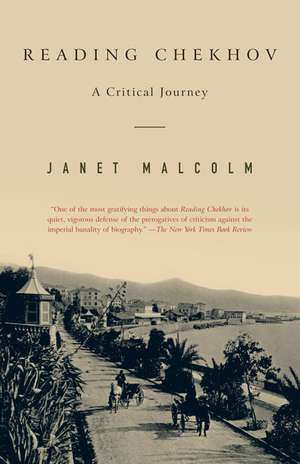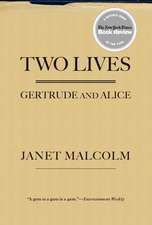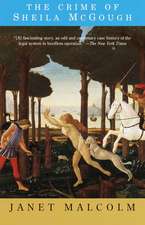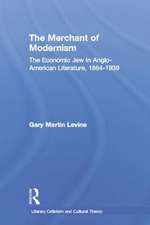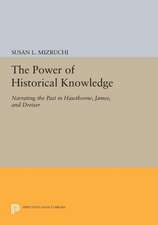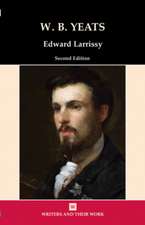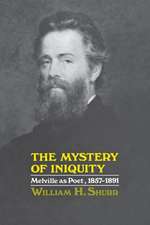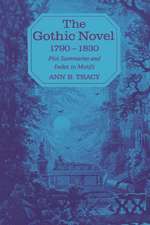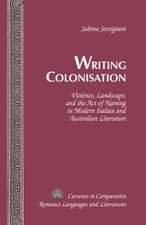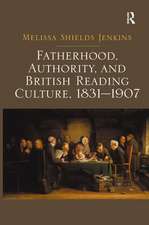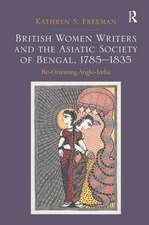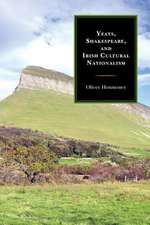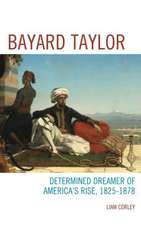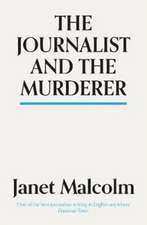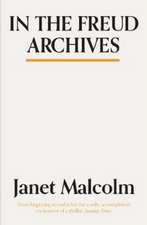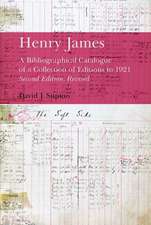Reading Chekhov: A Critical Journey
Autor Janet Malcolmen Limba Engleză Paperback – 31 oct 2002
Preț: 88.04 lei
Nou
Puncte Express: 132
Preț estimativ în valută:
16.85€ • 18.31$ • 14.16£
16.85€ • 18.31$ • 14.16£
Carte indisponibilă temporar
Doresc să fiu notificat când acest titlu va fi disponibil:
Se trimite...
Preluare comenzi: 021 569.72.76
Specificații
ISBN-13: 9780375761065
ISBN-10: 0375761063
Pagini: 224
Dimensiuni: 135 x 203 x 12 mm
Greutate: 0.16 kg
Editura: Random House Trade
ISBN-10: 0375761063
Pagini: 224
Dimensiuni: 135 x 203 x 12 mm
Greutate: 0.16 kg
Editura: Random House Trade
Extras
One
After they have slept together for the first time, Dmitri Dmitrich Gurov and Anna Sergeyevna von Diderits, the hero and heroine of Anton Chekhov's story "The Lady with the Dog" (1899), drive out at dawn to a village near Yalta called Oreanda, where they sit on a bench near a church and look down on the sea. "Yalta was hardly visible through the morning mist; white clouds stood motionless on the mountain-tops," Chekhov writes at the start of the famous passage that continues:
The leaves did not stir on the trees, grasshoppers chirruped, and the monotonous hollow sound of the sea rising up from below, spoke of the peace, of the eternal sleep awaiting us. So it must have sounded when there was no Yalta, no Oreanda here; so it sounds now, and it will sound as indifferently and monotonously when we are all no more. And in this constancy, in this complete indifference to the life and death of each of us, there lies hid, perhaps, a pledge of our eternal salvation, of the unceasing movement of life upon earth, of unceasing progress towards perfection. Sitting beside a young woman who in the dawn seemed so lovely, soothed and spellbound in these magical surroundings-the sea, mountains, clouds, the open sky-Gurov thought how in reality everything is beautiful in this world when one reflects: everything except what we think or do ourselves when we forget our human dignity and the higher aims of our existence.
Today, I am sitting on that same bench near the church looking at the same view. Beside me is my English-speaking guide Nina (I know no Russian), and a quarter of a mile away a driver named Yevgeny waits in his car at the entrance of the footpath leading to the lookout point where Gurov and Anna sat, not yet aware of the great love that lay before them. I am a character in a new drama: the absurdist farce of the literary pilgrim who leaves the magical pages of a work of genius and travels to an "original scene" that can only fall short of his expectations. However, because Nina and Yevgeny have gone to some trouble to find the spot, I pretend to be thrilled by it. Nina-a large woman in her late sixties, with short, straight blond hair, forget-me-not blue eyes, and an open passionate nature-is gratified. She breaks into song. "It's a big, wide wonderful world that we live in," she sings, and then asks, "Do you know this song?" When I say I do, she tells me that Deanna Durbin sang it in the 1948 film For the Love of Mary.
"Do you like Deanna Durbin?" she asks. I say yes.
"I adore Deanna Durbin," Nina says. "I have adored her since I was a girl."
She tells me of a chance encounter in a church in Yalta, two years earlier, with an Englishwoman named Muriel, who turned out to be another adorer of Deanna Durbin, and who subsequently invited her to the annual conference of an organization called the Deanna Durbin Society, which was held that year in Scarborough, England. Nina owns videos of all of Deanna Durbin's movies and knows all the songs Deanna Durbin sang. She offers to give me the address of the Deanna Durbin Society.
Nina was born and educated in St. Petersburg and, after studying the languages at the university there, became an Intourist guide, presently moving to Yalta. She has retired, and, like most retirees in the former Soviet Unioin, she cannot live on her pension. She now hires out as an independent guide and waits for assignments from the Hotel Yalta, currently the only habitable hotel in the town, My trip to Yalta is a stroke of good fortune for her; she had not worked for a long time when the call from the hotel came.
It is the second day of my acquaintance with Nina, the third day of my stay at the Hotel Yalta, and the ninth day of my trip to the former Soviet Union. I have worked my way south from St. Petersburg and Moscow. My arrival in Yalta was marked by an incident that rather dramatically brought into view something that had lain just below my consciousness as I pursued my itinerary of visits to houses where Chekhov lived and places he had written about. I had flow from Moscow to Simferopol, the nearest twon to Yalta with an airport, a two-hour drive away. Checkov lived in Yalta during much of the last five years of his life. (He died in July, 1904.) At that time, exile to places with mild climates, like the Crimea and the Riviera, was the favored therapy for tuberculosis, into whose last stages Chekov was entering inthe late eighteen-nineties. He built a handsome villa a few miles outside the city center, in a suburb called Autka, and also bought a small cottage on the water in a seadisde Tatar village called Gurzuf. He wrote "Three Sisters" and "The Cherry Orchard," as well as "The Lady with the Dog" and "The Bishop," in these houses.
At the Simferopol airport, as I stood in line at the immigration counter waiting to have my passport and visa stamped, I saw, as if in a dream's slow motion, a man in the baggage area on the other side of a glass panel walk out of the building with my suitcase in his hand. The hallucination proved to be real. In a daze, I filled out a lost luggage form and followed an English-speaking woman who worked for the Hotel Yalta to a car in the parking lot. She said she would trace my lauggage and disappeared. The driver--the same Yevegeny who now twists in the car in Oreanda--drove me to the hotel in silence, his English and my Russian in exact equilibrium.
As we neared the Black Sea coast, the Ukranian farm country gave way to terrain ressembling--and, in the variety and beauty of its vegetation, surpassing--that of the Riviera corniches. The winding road offered views of mountains and glimpses of the sea below. But when the Hotel Yalta came into view I caught my breath at its spectacular ugliness. It is a monstrous building--erected in 1975, with a capacity of twenty-five hundred people--that is like a brute's blow in the face of the countryside. Its scale would be problematic anywhere, and on the hillside above Yalta it is catastrophic.
From the Hardcover edition.
After they have slept together for the first time, Dmitri Dmitrich Gurov and Anna Sergeyevna von Diderits, the hero and heroine of Anton Chekhov's story "The Lady with the Dog" (1899), drive out at dawn to a village near Yalta called Oreanda, where they sit on a bench near a church and look down on the sea. "Yalta was hardly visible through the morning mist; white clouds stood motionless on the mountain-tops," Chekhov writes at the start of the famous passage that continues:
The leaves did not stir on the trees, grasshoppers chirruped, and the monotonous hollow sound of the sea rising up from below, spoke of the peace, of the eternal sleep awaiting us. So it must have sounded when there was no Yalta, no Oreanda here; so it sounds now, and it will sound as indifferently and monotonously when we are all no more. And in this constancy, in this complete indifference to the life and death of each of us, there lies hid, perhaps, a pledge of our eternal salvation, of the unceasing movement of life upon earth, of unceasing progress towards perfection. Sitting beside a young woman who in the dawn seemed so lovely, soothed and spellbound in these magical surroundings-the sea, mountains, clouds, the open sky-Gurov thought how in reality everything is beautiful in this world when one reflects: everything except what we think or do ourselves when we forget our human dignity and the higher aims of our existence.
Today, I am sitting on that same bench near the church looking at the same view. Beside me is my English-speaking guide Nina (I know no Russian), and a quarter of a mile away a driver named Yevgeny waits in his car at the entrance of the footpath leading to the lookout point where Gurov and Anna sat, not yet aware of the great love that lay before them. I am a character in a new drama: the absurdist farce of the literary pilgrim who leaves the magical pages of a work of genius and travels to an "original scene" that can only fall short of his expectations. However, because Nina and Yevgeny have gone to some trouble to find the spot, I pretend to be thrilled by it. Nina-a large woman in her late sixties, with short, straight blond hair, forget-me-not blue eyes, and an open passionate nature-is gratified. She breaks into song. "It's a big, wide wonderful world that we live in," she sings, and then asks, "Do you know this song?" When I say I do, she tells me that Deanna Durbin sang it in the 1948 film For the Love of Mary.
"Do you like Deanna Durbin?" she asks. I say yes.
"I adore Deanna Durbin," Nina says. "I have adored her since I was a girl."
She tells me of a chance encounter in a church in Yalta, two years earlier, with an Englishwoman named Muriel, who turned out to be another adorer of Deanna Durbin, and who subsequently invited her to the annual conference of an organization called the Deanna Durbin Society, which was held that year in Scarborough, England. Nina owns videos of all of Deanna Durbin's movies and knows all the songs Deanna Durbin sang. She offers to give me the address of the Deanna Durbin Society.
Nina was born and educated in St. Petersburg and, after studying the languages at the university there, became an Intourist guide, presently moving to Yalta. She has retired, and, like most retirees in the former Soviet Unioin, she cannot live on her pension. She now hires out as an independent guide and waits for assignments from the Hotel Yalta, currently the only habitable hotel in the town, My trip to Yalta is a stroke of good fortune for her; she had not worked for a long time when the call from the hotel came.
It is the second day of my acquaintance with Nina, the third day of my stay at the Hotel Yalta, and the ninth day of my trip to the former Soviet Union. I have worked my way south from St. Petersburg and Moscow. My arrival in Yalta was marked by an incident that rather dramatically brought into view something that had lain just below my consciousness as I pursued my itinerary of visits to houses where Chekhov lived and places he had written about. I had flow from Moscow to Simferopol, the nearest twon to Yalta with an airport, a two-hour drive away. Checkov lived in Yalta during much of the last five years of his life. (He died in July, 1904.) At that time, exile to places with mild climates, like the Crimea and the Riviera, was the favored therapy for tuberculosis, into whose last stages Chekov was entering inthe late eighteen-nineties. He built a handsome villa a few miles outside the city center, in a suburb called Autka, and also bought a small cottage on the water in a seadisde Tatar village called Gurzuf. He wrote "Three Sisters" and "The Cherry Orchard," as well as "The Lady with the Dog" and "The Bishop," in these houses.
At the Simferopol airport, as I stood in line at the immigration counter waiting to have my passport and visa stamped, I saw, as if in a dream's slow motion, a man in the baggage area on the other side of a glass panel walk out of the building with my suitcase in his hand. The hallucination proved to be real. In a daze, I filled out a lost luggage form and followed an English-speaking woman who worked for the Hotel Yalta to a car in the parking lot. She said she would trace my lauggage and disappeared. The driver--the same Yevegeny who now twists in the car in Oreanda--drove me to the hotel in silence, his English and my Russian in exact equilibrium.
As we neared the Black Sea coast, the Ukranian farm country gave way to terrain ressembling--and, in the variety and beauty of its vegetation, surpassing--that of the Riviera corniches. The winding road offered views of mountains and glimpses of the sea below. But when the Hotel Yalta came into view I caught my breath at its spectacular ugliness. It is a monstrous building--erected in 1975, with a capacity of twenty-five hundred people--that is like a brute's blow in the face of the countryside. Its scale would be problematic anywhere, and on the hillside above Yalta it is catastrophic.
From the Hardcover edition.
Notă biografică
Janet Malcolm's previous books are Diana and Nikon: Essays on Photography; Psychoanalysis: The Impossible Profession; In the Freud Archives; The Journalist and the Murderer; The Purloined Clinic: Selected Writings; The Silent Woman: Slyvia Plath and Ted Hughes; and The Crime of Sheila McGough. She lives in New York with her husband, Gardner Botsford.
From the Hardcover edition.
From the Hardcover edition.
Recenzii
“One of the most gratifying things about Reading Chekhov is its quiet, vigorous defense of the prerogatives of criticism against the imperial banality of biography.” —The New York Times Book Review
“[A] thoughtful and sensitive study . . . A great part of the charm and the skill of Janet Malcolm’s book lies in the very Chekhovian way she mingles personal with critical comment, taking us not only through Chekhov’s stories but through the removals and journeys of his life and her own travels in quest of his Russian haunts.” —The New York Review of Books
“With the gentle inevitability of a balloon lofting skyward, the discourse effortlessly ascends from chatter to contemplation to genuinely brilliant critique. . . . With its balance of distilled perception and companionable spirit, Reading Chekhov embodies the same qualities it celebrates.” —San Francisco Chronicle
“[A] thoughtful and sensitive study . . . A great part of the charm and the skill of Janet Malcolm’s book lies in the very Chekhovian way she mingles personal with critical comment, taking us not only through Chekhov’s stories but through the removals and journeys of his life and her own travels in quest of his Russian haunts.” —The New York Review of Books
“With the gentle inevitability of a balloon lofting skyward, the discourse effortlessly ascends from chatter to contemplation to genuinely brilliant critique. . . . With its balance of distilled perception and companionable spirit, Reading Chekhov embodies the same qualities it celebrates.” —San Francisco Chronicle
Descriere
To illuminate the mysterious greatness of Anton Chekhov's writings, Malcolm takes on three roles: literary critic, biographer, and journalist. Her close readings of the stories and plays are interwoven with episodes from Chekhov's life. Both lovers of Chekhov and those new to his work will be transfixed by "Reading Chekhov" and be inspired to turn to or revisit his masterpieces.
